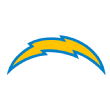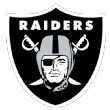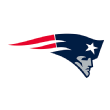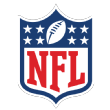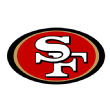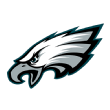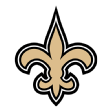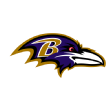Barnwell: What actually matters this NFL preseason, from AB to Jimmy G

The important part of the NFL preseason, if there is one, is over. Week 3 is the traditional time for starters to get the majority of their exhibition action in before the season begins, which is why you saw stars such asTom Brady and Patrick Mahomes start and play into the second quarter over the weekend. With the final week of the preseason usually assigned to backups and players who are competing for roster spots, the next time we'll see many of the league's most notable players will be in Week 1 of the regular season.
Before we get to the real games, though, we need to take stock of what happened this preseason. In a world in which fans crave stats on how players perform in practice, it's easy to get carried away with what we see during these games. Every team has a midround pick who breaks through and looks to be a budding star or a veteran who lost 15 pounds during the offseason and showed up in the "best shape of his life." Sometimes, that rookie turns into Dak Prescott, and the veteran ends up beingEric Ebron. Most of the time, those breakthroughs don't actually amount to much when the real football begins.
Let's run through some of the news from this preseason and try to figure out whether it's likely to actually matter in the season to come. The biggest news of the preseason is obviously Andrew Luck's retirement, but I wrote about Luck's retirement and what it means over the weekend. I'll start with the second-most impactful injury affecting an NFL team:
Jump to a player:
Injuries: S James | CB Young | C Morse
S Derwin James' foot injury
If the Chargers could only keep their core of stars healthy for one full season, right? The famous Chargers lament has already struck to start the 2019 season. While it's tempting to try to find a line through the causes of Los Angeles' annual injury crisis, I don't think there's anything Anthony Lynn & Co. could have done about what happened to their second-year safety. James had a screw inserted into his foot during high school, but after taking a false step during joint practices with the Saints, he bent the screw and reinjured the foot.
While there were hopes that James might miss a few weeks before returning, the Chargers announced that James will be out for three to four months and they will place their 2018 first-round pick on injured reserve. The time frame given by the Chargers suggests that he is dealing with a Jones fracture to his fifth metatarsal, an injury that has more commonly been associated with wideouts such asDez Bryant and Sammy Watkins, as well as NBA star Kevin Durant. Bryant notably made it back to the Cowboys six weeks after suffering his injury in 2015, but he wasn't the same player, both during that season and in the years following.
The focus has to be on getting the 23-year-old James right for what should be a long career, even if it means sacrificing him for most of 2019. When L.A. places James on injured reserve, he won't be able to return until Week 9 of the regular season, and even that would be ahead of his prescribed timeline. It's more likely that we don't see him in a uniform again until November. The dream would likely be to get James back for Monday Night Football in Week 11, which will be the first of the team's two games against the division-rival Chiefs.
There's no sugarcoating James' absence. There are few safeties in all of football, let alone on the Chargers' roster, with his versatility. James can play either safety role and excel in coverage against tight ends and wide receivers. Those myriad skills allowed defensive coordinator Gus Bradley to help disguise his defense before the snap.Adrian Phillips will take James' spot in the starting lineup, and the All-Pro special-teamer has played everything from linebacker to cornerback as a college and pro player, but even Phillips admits he's not the same sort of playmaker as James. He is likely best as a box safety for the Chargers, who might also hand more snaps to former Eagles defensive back Jaylen Watkins and second-round pick Nasir Adderley, who has been absent for most of the offseason program with a hamstring issue.
The Chargers managed to overcome injury issues last season, of course, and they'll hope to replace what could be a half-season from James by getting a full season from Joey Bosa, who missed the first nine games of 2018 with a foot injury. The problem is that the offense is also sprouting leaks, with Keenan Allen missing all of the preseason with an ankle injury and left tackle Russell Okung sidelined indefinitely by a pulmonary embolism. (Bosa, too, is still dealing with soreness in his foot.) The Chargers are wildly talented, but injuries are already capping their ceiling, with James' foot a particularly brutal blow.
The Verdict: Matters
C Mitch Morse's concussion
I'll throw another injury in here. Of course, every brain injury suffered by a player has a deleterious effect on their long-term health and is meaningful. I'm particularly concerned about Morse, whose new four-year, $44.5 million deal with the Bills makes him the highest-paid center in football. The 27-year-old Morse suffered a concussion in late July and has missed the Bills' first three preseason games.
His concussion history is concerning, given that the talented center now has at least four recorded concussions from his time with the Chiefs and missed six weeks with a concussion last season. The Bills cleared Morse from the concussion protocol and have him back practicing, but studies suggest that players are more likely to suffer a concussion after previously suffering one. On the field, too, Morse hasn't had game time to work with second-year quarterback Josh Allen, who will unquestionably rely on the more experienced Morse to help with setting protections at the line of scrimmage.
The Bills invested in multiple offensive linemen this offseason, but injuries have prevented them from lining up like they want so far. It will likely take more time for Morse and the rest to develop a rapport in front of their mobile young quarterback this season than Sean McDermott would have hoped.
The Verdict: Matters
WR Antonio Brown's weird summer
I'm far more skeptical that Brown's training camp from hell will mean all that much in the regular season. His bizarre foot injury made for gross photos and great headlines, but now that the swelling from the frostbite has gone down and his feet have had time to recover, he should be able to run and cut at something close to his usual speed. Everyone will freak out the first time Brown drops a pass in his new helmet, but I don't think a helmet turned Brown into a superstar. I'm also not especially concerned that Brown didn't have much time to practice with his new teammates, given how many top-tier receivers take regular time off from practice without losing much of their rhythm with their quarterbacks.
What does concern me, of course, is the drop-off from Ben Roethlisbergerto Derek Carr. Brown's efficiency is likely to decline this season, although the 31-year-old might be able to keep up his production with an increase in volume from the 168 targets he enjoyed during his final year in Pittsburgh. I would expect Brown to decline in 2019, but for reasons unrelated to what happened to him in July and August.
The Verdict: Doesn't matter
WR Josh Gordon's return
An afterthought for most of the offseason after leaving the Patriots in December, Gordon applied for reinstatement from his indefinite suspension in August and was granted his reinstatement less than three weeks later. He averaged 74.5 receiving yards per game during his final eight games with the Patriots, a figure that would prorate out to 1,192 yards over a full 16-game season. (It's fair to note that Gordon hasn't played one of those since his rookie year in 2012.)
There's more upside for Gordon than those numbers from 2018 suggest, however. For one, the Patriots lost players who accounted for nearly 30% of their targets and just over 40% of Tom Brady's air yards from a year ago. Rob Gronkowski retired, while Chris Hogan and Cordarrelle Patterson left in free agency. Gordon was targeted on 19.8% of the routes he ran last season, which was about as frequently as Gronk and Phillip Dorsett. It wouldn't be shocking if his role expanded.
The primary receiver the Patriots acquired to replace their missing targets was first-round pick N'Keal Harry, who flashed promise during the preseason but is also unavailable to practice with multiple injuries. With Gordon back and Demaryius Thomas returning to practice, Harry's path to an early-season role seems limited. The Patriots might very well cut Thomas, and coach Bill Belichick assuredly isn't counting on Gordon for more than a week at a time, but there's an opportunity for the wildly talented former Browns wideout to make an impact in the short term. It would come at Harry's expense.
The Verdict: Matters
Starters sitting
The march of the league has been toward risking starters less frequently during the preseason for years now, but that trend is accelerating. The key mover here is likely Sean McVay, who kept most of his first-team offense out for the entirety of the 2018 preseason and then repeated the decision again this time around. Unsurprisingly, in a copycat league that has fallen in love with many of McVay's choices, the rest of the league is beginning to follow.
In addition to Jared Goff, there are four other teams that sat their starting quarterback for the entirety of the preseason. Mitchell Trubisky, Aaron Rodgers, Philip Riversand Carson Wentz all have not thrown a pass in advance of the final exhibition week, when starters typically do not play. Rodgers might have played had the Packers arrived to a more suitable field in Winnipeg against the Raiders, but there are other quarterbacks who have barely had a sniff of the field this preseason. Drew Brees has thrown six passes this August. Deshaun Watson is at seven, with former Vikings playoff starter Joe Webb throwing 86 of Houston's 99 pass attempts.
The final tipping point for fans who are forced to pay over the odds for preseason tickets as part of their regular-season package is likely the complete absence of their star quarterbacks. It's one thing for rabid fan bases like the Eagles and Packers, who have season-ticket waiting lists, but how can the Chargers ask their fans to buy home preseason tickets if they're not even going to see a token series or quarter from Rivers, let alone the likes of Joey Bosa and Melvin Ingram?
I'm not arguing that teams should play their starters in meaningless exhibition games. The Rams are smart for sitting their stars. The Chargers shouldn't risk Rivers. In making a rational, logical decision, though, these teams are taking a preseason product that already bore little resemblance to their regular-season stars and making it unrecognizable. It's one thing to ask fans to root for laundry; it's another to ask them to pay regular-season prices for the privilege of doing so in a stadium. That perverse incentive is going to affect the upcoming CBA negotiations.
The Verdict: Matters
QB Jimmy Garoppolo's awkward Week 2
You have to figure Garoppolo didn't imagine his return would have gone the way it did. After missing 11 months with a torn ACL, Garoppolo made his return to an NFL field against the Broncos in Week 2 of the preseason. The much-anticipated return was a mess, as he went 1-of-6 for zero yards with an interception. You might even argue that the stats undersold how bad Garoppolo looked, which is pretty hard to do when you're 1-of-6 for zero yards. This performance came after Garoppolo threw interceptions on five consecutive pass attempts in a midweek practice.
He did look better in a longer Week 3 performance against the Chiefs, but I'm still concerned. His footwork looks choppy, especially at the end of a longer drop or when he turns his back to the defense and has to work off play-action. The Chiefs barely pressured Garoppolo, which allowed him to cycle through his progressions and make throws from a steady base.
Coincidentally, the issues bothering him are the same problems Tom Brady had when he returned from his own serious knee injury during the opening weeks of the 2009 season. Garoppolo still seems unsure and unsteady when he's asked to plant his front foot and make a throw, especially under pressure. The result is a loss of accuracy and velocity, along with a propensity to sail throws, all of which showed up on his interception against the Broncos.
Brady was able to conquer his fears, although it took some time. The future Hall of Famer posted a 2.3% interception rate during that 2009 campaign, which would be the highest interception rate he would post in a single season after that legendary 2007 campaign. Garoppolo's true interception rate is almost surely higher than Brady's, which could lead to an ugly number if his footwork is inconsistent over a full 16-game season.
Kyle Shanahan doesn't need his quarterbacks to be Tony Romo or Russell Wilson, and Garoppolo has never been much of a scrambler. What the 49ers coach needs, though, can be at odds with where Garoppolo seems to be in his recovery. He needs a quarterback who is comfortable working in the pocket under pressure to find an open receiver. Shanahan also builds so much of his offense off the outside zone and play-action, asking his quarterback to start from under center and bootleg away from a play-fake to reset and make a strong throw. He could theoretically make it easier for Garoppolo by working out of shotgun more frequently and reducing the steps Garoppolo has to take in a given game, but it's more likely that the 49ers will start the year hoping that Garoppolo grows into the role. He'll get there, but the early returns could be ugly. It helps that the 49ers start the year with a trip to Tampa Bay.
The Verdict: Matters
The Eagles' signing of QBJosh McCown
Perhaps we're biased here, given that McCown was very briefly a colleague at ESPN, but the most obvious point of weakness for the Eagles had been at backup quarterback. They have one of the deepest rosters in football, especially along the line of scrimmage, but Carson Wentz has been able to completeonly one 16-game season in three tries and has yet to suit up for a postseason game. Philadelphia had Nick Foles to fill in during the 2017 and 2018 seasons and clearly has some confidence in Nate Sudfeld, but when the Indiana product broke his wrist in the preseason opener, the Eagles were down to Cody Kessler and rookie Clayton Thorson behind their franchise quarterback.
At age 40, there's no guarantee McCown is a viable replacement for Wentz. After an impressive 2017 season with the Jets, he struggled in limited time when taking over for Sam Darnold a year ago, throwing four picks on 110 attempts. None was pretty. You would count on McCown getting a bump from playing with better teammates and under an excellent offensive mind in Doug Pederson, but it's entirely possible that the Eagles have to turn to McCown and he's no better than replacement value.
Even given that chance, though, the Eagles had to try to upgrade in the place that was most likely to stand in their way of competing for a Super Bowl, and McCown was likely the best option available. It only cost the Eagles money, given that McCown was signed after the compensatory pick deadline. The Eagles had the third-highest cash payroll in the league at $231.5 million before signing McCown and jumped past the Jets into second after making the move. Some owners wouldn't be willing to spend that extra $2 million as an insurance policy. Doing so might end up saving Philly's season if Wentz goes down.
The Verdict: Matters
QB Taysom Hill's preseason
The Saints have a plan at quarterback. Drew Brees is going to lead the way. If he gets injured or struggles to the point where the Saints need to replace him, Sean Payton re-signed Teddy Bridgewater to a one-year deal worth $7.25 million. Hill exists somewhere between those two in a role somewhere between quarterback and gadget player. He took 181 offensive snaps last season and threw seven passes, yielding 64 passing yards and an interception. When you consider that Hill ran the ball 37 times and was targeted on seven pass attempts, the BYU product's ratios are far closer to someone like Wildcat-era Ronnie Brown than they are to a typical passer.
During the preseason, though, Hill has vastly outplayed his competition for the backup job. With Bridgewater limping to a 73.5 passer rating and averaging just 5.6 yards per attempt, Hill has gone 27-of-42 for 343 yards with three touchdown passes against one interception, good for 8.2 yards per attempt and a passer rating of 103.6. Throw in 13 carries for 113 yards on the ground, and he's been wildly productive as both a passer and runner so far this preseason.
Is that enough to fundamentally change the way the Saints view Hill? I don't think so. Look back at last preseason, when Hill carved himself out a roster spot by going 36-of-49 for 365 yards as a passer while running 19 times for 161 yards and two scores. Payton was impressed, but he still went and traded a third-round pick to the Jets for Bridgewater and a sixth-round pick. Hill has been effective in the preseason, but plenty of passers put up impressive numbers against backups and then struggle to translate that into regular-season success. (Nathan Peterman, to pick a quarterback, posted a 124.7 passer rating and averaged 10.5 yards per attempt last preseason.)
The Saints have a useful player in Hill, and Payton has done a great job to carve out a unique role for the 29-year-old's skills, but I don't think we've seen enough to suggest that Hill should be the Saints' No. 2 quarterback, nor do I think the Saints themselves feel that way.
The Verdict: Doesn't matter
CB Tavon Young's injury
The Ravens were already a defense in transition. Eleven Baltimore defenders played more than 50% of the team's defensive snaps a year ago, and five of those defenders -- Eric Weddle, C.J. Mosley, Terrell Suggs, Za'Darius Smithand Brent Urban -- left the organization this offseason. While the Ravens did sign Seahawks legend Earl Thomas to replace Weddle, the only other significant acquisition they made to offset the outgoing talent was to bring back oft-injured pass-rusher Pernell McPhee on a one-year deal.
The one place the Ravens probably felt secure was at cornerback, where they could bring back their top four corners in Jimmy Smith, Brandon Carr, budding star Marlon Humphreyand slot corner Tavon Young. The Ravens showed their commitment to Young by signing the 25-year-old to a three-year, $25.8 million extension this offseason, making Young one of the league's highest-paid slot corners.
Baltimore has locked up young corners such as Smith and Lardarius Webb in the past and had those deals go south thanks to injuries. Sadly, Young's extension has already begun to follow in those footsteps. Young suffered a neck injury in practicethat seems likely to cost him the entire 2019 campaign. John Harbaugh suggested that the disc injury didn't threaten Young's career, but the Ravens haven't yet announced whether Young will have surgery or what his time frame is for return.
The good news for defensive coordinator Don Martindale is that the Ravens are deep at corner, even after losing Young. They have Cyrus Jones on the roster, and the former Patriots corner played some in the slot during his time under Belichick. It's fair to note, however, that he wasn't very productive with the Patriots and was cut as a second-round pick after just 12 games across two-plus seasons with the Pats.
Carr took some snaps in the slot last season and certainly has the experience to diagnose just about anything. He's also 33 and spent most of his career on the outside. The smartest thing for Baltimore to do is get its three best corners on the field, which means playing Humphrey, Smith and Carr. I don't think Carr is going to be unplayable in the slot, but I do think his relative inexperience in the slot and advancing age suggest that he's not going to live up to Young's level of play from a year ago. It's also worrisome to see yet another Ravens investment at corner struggle with injuries, although we should chalk that up strictly to bad luck.
The Verdict: Matters
Kicker concerns
Anxious fan bases across the league get stressed when their kicker misses anything during the preseason. The Vikings were so worried about Dan Bailey that they traded a fifth-round pick to the Ravens for Kaare Vedvik, who might profile as a kicker, a punter, or both. The Jets, who let Pro Bowl kicker Jason Myers leave for the Seahawks in free agency, were so anxious about Chandler Catanzaro that the veteran chose to retire after missing two extra points. Let's not even start with the Bears.
The reality, though, is that it's foolish to base significant decisions about kickers on one regular-season's worth of data when that might amount to 30 field goals and 35 extra points. When you factor in the degree of difficulty for those extra points and some of the shorter kicks, we might be looking at only 20 kicks per year where the league average dips below 90%. It would be like judging a baseball player on 20 at-bats per year or a shooting guard on 20 shots.
Now, imagine making the same judgments about the preseason when a kicker might attempt only six field goals and a similar number of extra points over a four-game stretch. Plenty of teams carry a second kicker and give them a scoring try or two as well. Last preseason, Justin Tucker was 4-of-8 on field goal attempts. Of course, all of the misses were from 50 or more yards out. Once the season began, Tucker was his usual self, going 35-of-39 on field goals, including 5-of-7 on kicks of 50 yards or more. Don't get stressed about what a kicker does on six or eight attempts in August.
The Verdict: Doesn't matter
QB Daniel Jones' breakout
Let's finish up by getting to one of the most impressive performances this preseason. There was certainly no shortage of opinions when the Giants drafted Jones with the sixth overall pick, and the the Duke product has been brilliant in his first preseason. Ahead of Thursday night's 16-game slate, Jones has gone 25-of-30 passing for 369 yards with two touchdowns, good for a passer rating of 140.1. No player who has thrown more passes than Jones this preseason has a superior passer rating to the 22-year-old.
The Giants, naturally, are thrilled. After seeing him get booed at Yankee Stadium earlier this offseason, Pat Shurmur is already feeling his told-you-sos. "You can ask me all you want about why I like him," Shurmur said last week. "I think it's time to start asking the people that didn't like him what they think, quite frankly."
Allow me to disagree. This is not that time. Several years ago, I researched first-round picks and how they performed during their debut preseasons as a response to a hot start from Blake Bortles. A then-rookie Bortles finished the preseason with a passer rating of 110.0, and despite the Jaguars publicly suggesting after the draft that they wanted to redshirt him and rebuild his throwing mechanics, the UCF product was inserted into the starting lineup by Week 4.
Of course, things didn't end up working out for Bortles in Jacksonville. Mark Sanchez, who posted a passer rating of 111.0 during his debut preseason with the Jets, enjoyed early success with a great defense but was never able to hold up his end of the bargain on offense. The Sanchize also threw nearly twice as many interceptions (20) as he did touchdown passes (12) during that rookie campaign.
There are exceptions, of course. I mentioned Prescott earlier, and while the Cowboys weren't planning on starting the fourth-round pick during his rookie season, it took one injury to Romo to change their plans. Prescott posted a beautiful 137.8 passer rating during the preseason and then impressed enough as a starter to keep the job when Romo was healthy enough to return.
The takeaway here is that preseason numbers are far too messy and poisoned by context to take seriously. First-round picks -- especially ones who aren't playing with the ones -- are going up against vanilla defenses full of players who are either going to play special teams or bounce around practice squads. Their coaching staffs invariably want to place their shiny new toys in situations where they can succeed and build confidence. It's no surprise that most impress and then struggle upon their first lengthy stretch of regular-season action.
The Giants obviously like Jones. They have every right to be proud of how he has played. Fans who were skeptical of the decision have every right to feel hopeful about Jones given how he has performed. It's certainly better to play well in the preseason than struggle and throw a bunch of interceptions, of course.
The idea that people who criticized Jones need to suddenly answer for their middling evaluations because Jones has looked good, though, is a foolish one. Jones has played all of three series against a No. 1 defense, all of which came against the Bengals last week. Those three possessions produced seven points, and while Jones' numbers (7-of-9 passing for 115 yards) look good, they include a strip sack and a pair of long completions on isolation routes in which Jones threw up passes and had receivers Darius Slayton and Brittan Golden outmuscle opposing defensive backs. I'm not sure how sustainable that's going to be against starting defenses throughout the season, especially if Golden and Slayton are the targets.
Should the Giants use what they've seen from Jones to accelerate his ascent into the starting lineup? They should be pushing their rookie into the lineup, but that has nothing to do with his preseason performance. This team is going nowhere with Eli Manning as the starter. Jones isn't going to post a 140.1 passer rating during the regular season. He's going to struggle for stretches. Better to get those struggles out of the way and start getting Jones used to the actual speed of the NFL now.
If he continues to play at a high level when the games count and he's up against talented defenses, the Giants should start crowing about their controversial pick. Until then, what we've seen so far doesn't tell us much at all about Jones' likelihood of succeeding in the long term.
The Verdict: Doesn't matter

